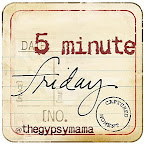Lectio Divina--Day Two
[Here is a follow-up to an earlier post on Lectio Divina.]
A few months ago I encountered an interesting concept in Larry Crabb’s The Pressure’s Off. In the book, Crabb describes what he calls “the Papa prayer,” which is a series of prompts to use for reflection and (of course) prayer.
A few months ago I encountered an interesting concept in Larry Crabb’s The Pressure’s Off. In the book, Crabb describes what he calls “the Papa prayer,” which is a series of prompts to use for reflection and (of course) prayer.
I’m not really
comfortable with turning a sacred practice into a step-by-step process. But Crabb's suggestions continue to
linger in my mind, and I’ve found it meaningful to revisit them from time to time. And as I’ve spent time in Matthew 14, one part of
the Papa prayer seems particularly relevant.
So I thought I’d pass it along:
“Attend to where you
notice God’s presence or absence in your day.”
Lately, it seems like
I’ve heard lots of people talk about instances where they’ve perceived God’s presence.
They often refer to such experiences as “God moments”
What about you? Do you know someone who has talked about a “God
moment” in his or her life? Have you
perhaps used it to describe an occasion in your life?
Crabb’s suggestion has caused me to think more about
what determines a “God moment”
for me. And I think my definition
involves times when life seems to be “working out.” A prayer is answered. A realization occurs. An illness is healed. A child (finally) begins to fall into step.
The problem with this
definition of a “God moment,” though, is this:
how, then, do I view the (many) instances when things aren’t “working out?” What about when a prayer seems to go
unanswered. When I continue to feel
confused. When pain or illness
lingers. When—despite my most sincere efforts—a child isn’t responding the way I’d like.
What Crabb’s question is helping me see is a long-nurtured
tendency to see such occasions as evidence of God’s absence. And I have a really (really!) hard time
believing (much less perceiving) that God can be—and often is—right there in
the midst of a challenging, painful, devastating circumstance. Unless, that is, He makes it all better.
And this is where
Matthew 14 comes into the discussion.
If I’d been one of the
disciples in that boat, there’s a pretty good chance I’d have felt like God was
“absent” from my circumstances. It’s the middle of the night—sometime between 3
and 6 a.m. The waters are rough. My companions and I have been rowing awhile—maybe
hours—laboring our sleep-deprived muscles against relentless waves. We’ve been in storms before, we know the
danger, and we are anxious. We’ve also just
seen Jesus work a massive miracle only a few hours ago. We know what He can do, and we are probably
hoping (maybe even praying) He will meet our need like He responded to all
those hungry people.
If I’d have been one
of the disciples, I would have wanted a “God moment.” Maybe a supernatural ending to a frightening storm. Or super-human strength to move us quickly
and powerfully to the more predictable shore, where I’d be safe.
Or at least Christ showing up to row with me, or to offer encouragement.
And when Christ did
make his presence known, I would have been right there with the others: I would have mistaken Him for a ghost—an
eery, supernatural being even more terrifying than the storm itself.
Yet, like the
disciples, I would’ve been smack dab in the middle of a “God moment.” And I wouldn’t have even realized it.
The storm, the
fatigue, the doubts, the darkness . . . all of this would’ve caused me—like the
disciples—to be afraid. To cry out in
terror. To think I was seeing a ghost.
To completely miss
Christ’s presence.
Which is why His words
are so powerful: Take courage. It is I. Don’t
be afraid.
As I’ve reflected on
this passage, these questions have emerged:
Do
I label the circumstances when life “works” as moments when God is present?
Do
I have the tendency to see times of fear, confusion, or weakness as instances
from which God is somehow absent?
I’ve also been
challenged to consider this:
The
experiences when I’m most exhausted, most overwhelmed, most confused—those are
occasions when I most often doubt God’s presence.
Then
anxiety takes over: I can’t see
Him. I’m unable to muster the strength
to muscle through. I worry that evil will overpower good, or that maybe my
ultimate fear—His abandoning me—is finally happening.
In
those moments, I can lose the ability to trust that He is coming. Or I mistake Him for someone or something
else. Something unwanted, frightening,
or even threatening.
And
all this happens even though He is right there.
The
rain pelts. The lightning flashes. My muscles strain. The waves crash. The boat rocks.
And
my eyes fail.
Yet
there He stands, in the midst of it all.
And He says this:
Take courage.
It is I.
Don’t be afraid.


Comments
Post a Comment